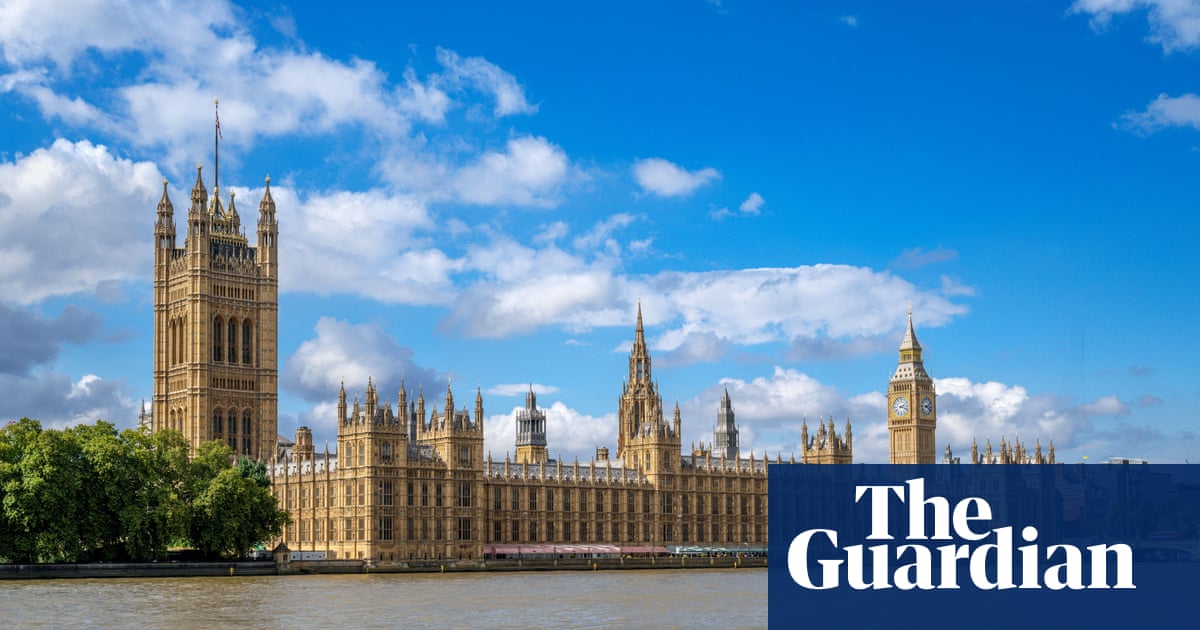A total of seven MPs have spent on average one working day a week on second jobs since the start of the 2024 parliament, with additional gigs as TV presenters, lawyers and consultants.
A Guardian analysis of self-declared working hours found the seven had worked at least 300 hours since July – the equivalent of eight hours a week, in outside employment averaged across the parliament – totalling more than 3,000 hours between them. A further seven MPs had worked at least five hours a week on a second job.
Nigel Farage has made more money than any other MPfrom additional jobsin this parliament so far. The Reform UK leader has declared an average of about 24 hours’ work a week as a cameo creator, GB News presenter, media commentator, public speaker, Telegraph journalist,brand ambassadorand social media influencer.
Farage has voted in only a third of parliamentary votes so far this parliament, while the average MP has voted 72% of the time, according to figures from the Public Whip. The figures don’t include abstentions, meaning MPs could have been in parliament but not taken a side on an issue.
The Conservative MP George Freeman has worked an average of 11.5 hours a week in a number of science and technology advisory roles to private companies since July last year. He said that his hours on outside interests helping UK and Norfolk science ventures raise money was a fraction of the 60 hours a week he worked when minister of state.
Freeman said: “Our parliament has always encouraged MPs with outside experience – whether as doctors, nurses, trade unionists or in my case helping UK science startup ventures, rather than professional politicians.
“My outside work in no way lessens my work as a constituency MP – on which I work [about] 70 hours a week over six days (four in Westminster and two in my constituency).”
TheReform UKMP Lee Anderson has clocked in 10.5 hours a week working as a presenter and contributor on GB News and making posts on the social media network X.
The Conservative MP Geoffrey Cox KC has declared the equivalent of 9 hours and 22 minutes a week in legal work since July last year, while fellow Tory John Hayes declared the equivalent of 8 hours and 48 minutes a week across his roles as a professor, lecturer, columnist and strategic adviser.
TheLabourMP James Naish declared an average of 8 hours and 47 minutes a week of outside work – but significantly cut down his hours as director of a property sales company at the end of August.
The final MP working on average eight hours or more a week was the DUP’s Carla Lockhart, who declared eight hours of work a week on her farm in County Fermanagh.
The Guardian totalled up hours billed for ad-hoc payments that MPs had received since the start of parliament, and calculated pro-rata hours for ongoing employment. The hours entered in the register are often top-end estimates – and some MPs may end up doing more hours during recess when parliament is not sitting.
A Labour peer called for a total ban on second jobs. Prem Sikka said: “If you want a good society the first thing you need to do is cleanse politics, and that means MPs must act exclusively as MPs – that means absolutely no other job.
Sign up toFirst Edition
Our morning email breaks down the key stories of the day, telling you what’s happening and why it matters
after newsletter promotion
“People hire MPs not because they have some special knowhow or skills, but because they open doors for them which other people can’t and give them access to policymakers.”
The analysis excluded billed hours for work in other elected positions – a further 27 MPs had worked an average of one business day a week as a councillor since being elected to the Commons, with some declaring almost 30 hours weekly for their council role. An analysis by ITV News found 26 MPs were still doubling up their job in parliament with their local role, with a majority of those attending fewer than half of council meetings since being elected to parliament.
In total, 236 out of 650 MPs declared at least some outside earnings, working a combined 32,000 hours between them in the first 264 days of parliament. Of those MPs, 105 had declared at least one period of ongoing paid employment, and 164 had declared at least one ad-hoc payment.
The Labour party previously pledged to ban all second jobs, but has since softened its stance to focus on paid advisory or consultancy roles.
In 2011,the Hansard Societyfound that MPs from the 2010 intake estimated they worked an average of 69 hours a week.
